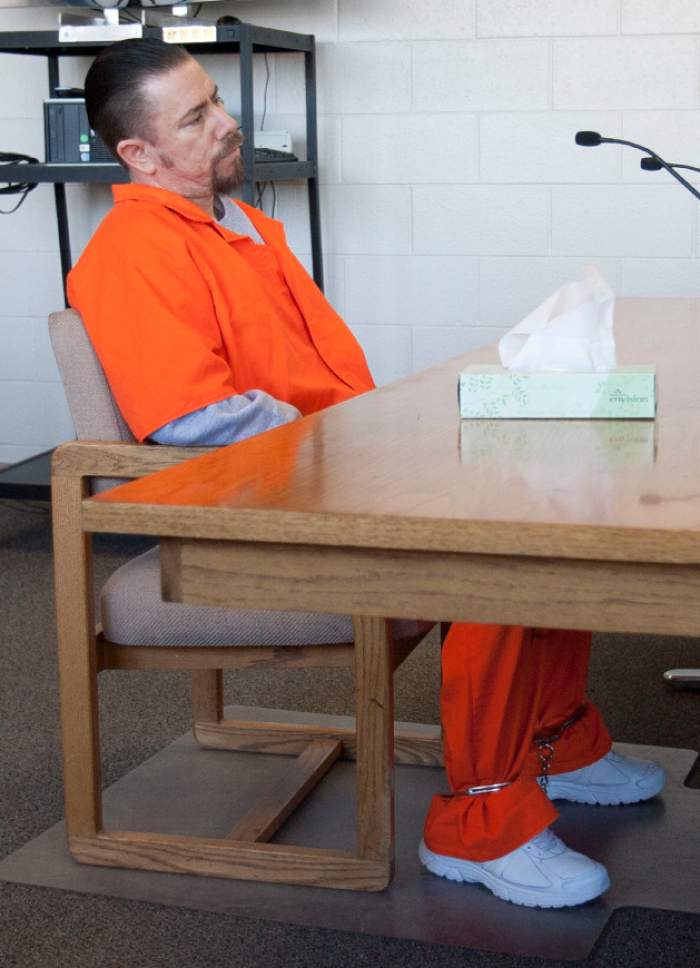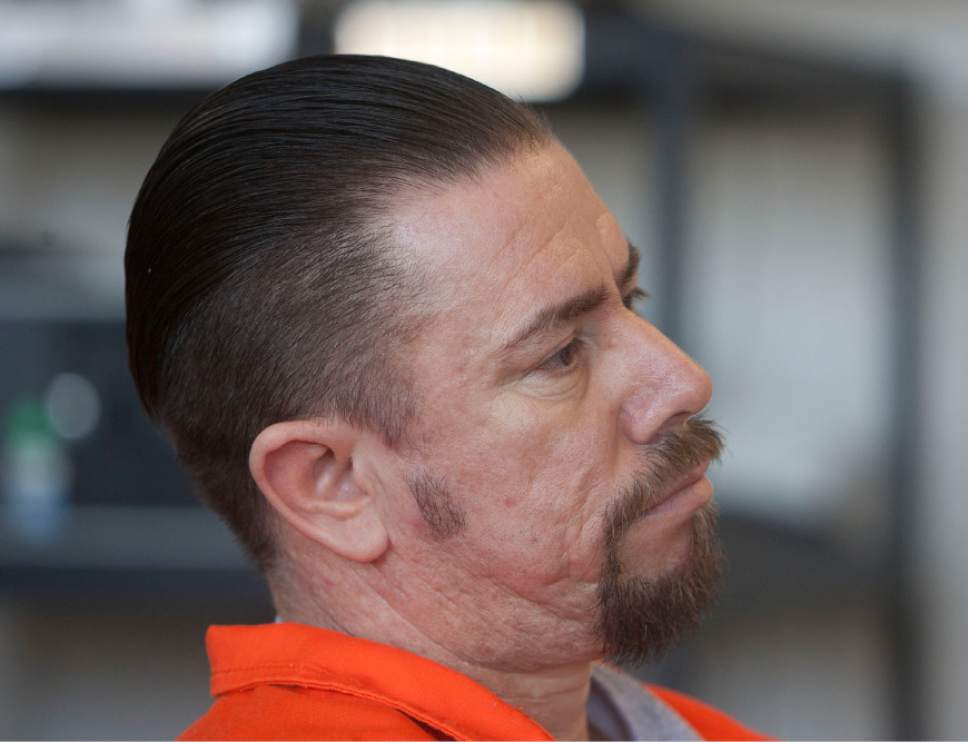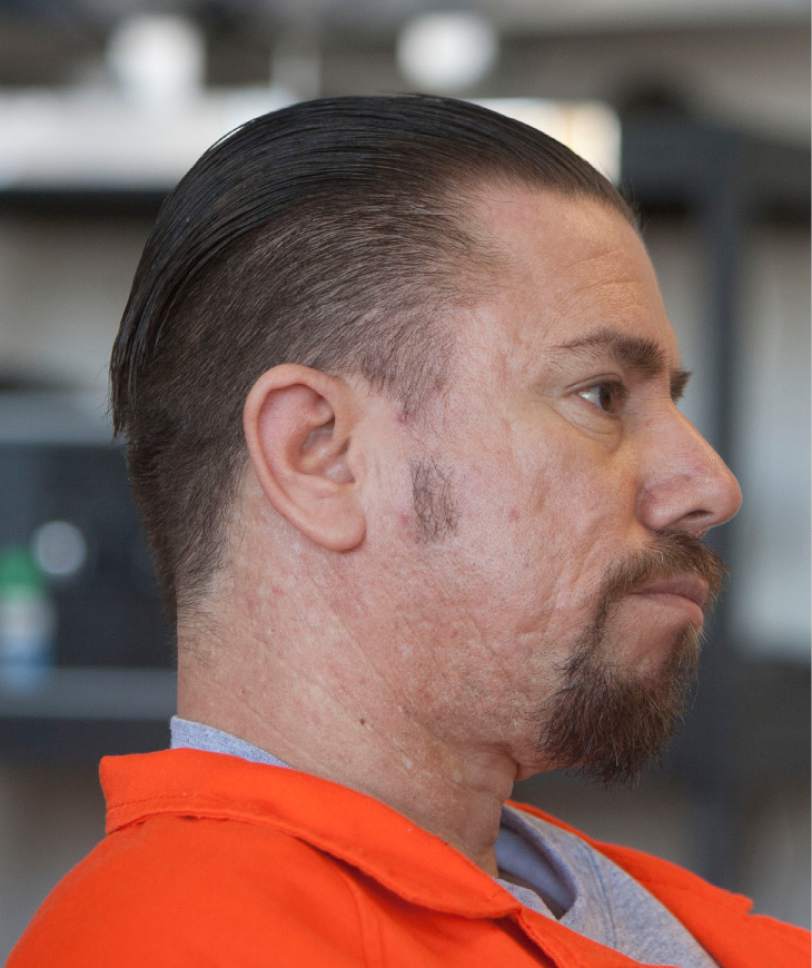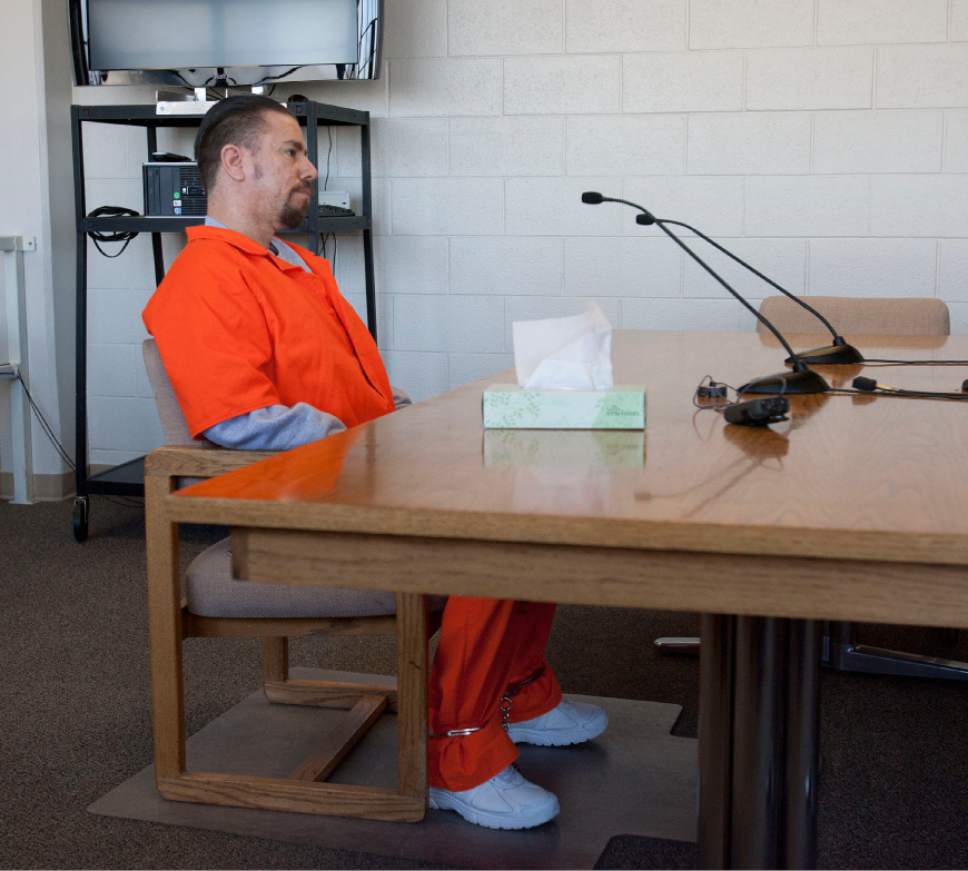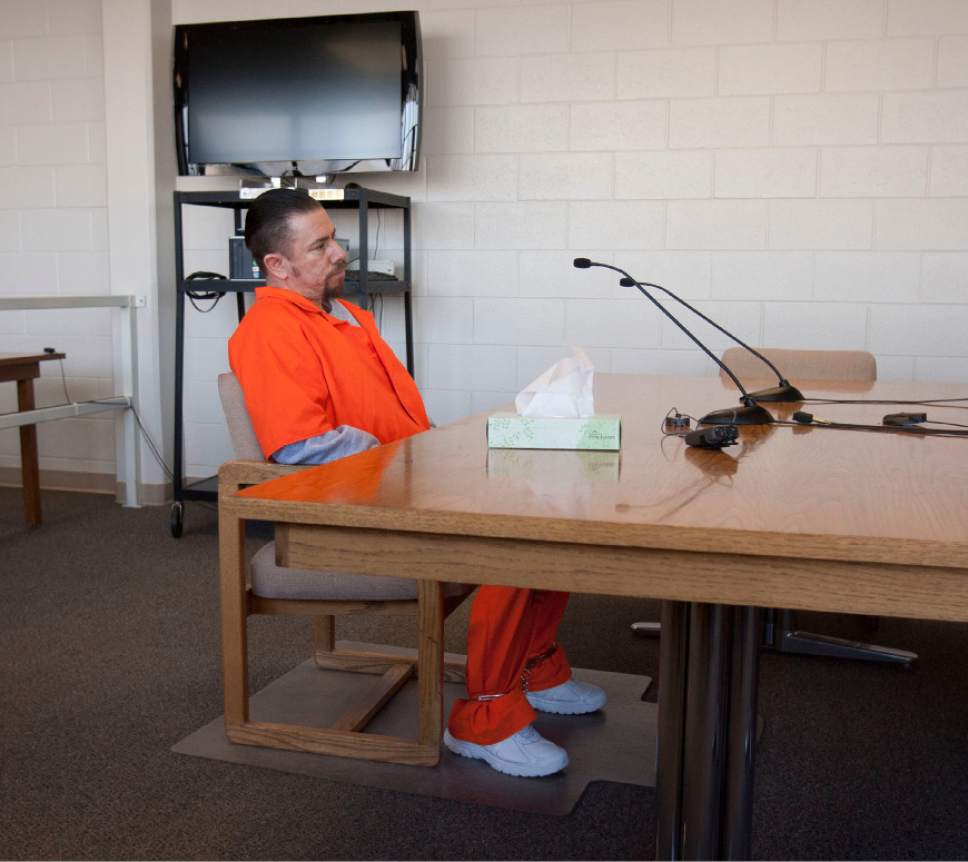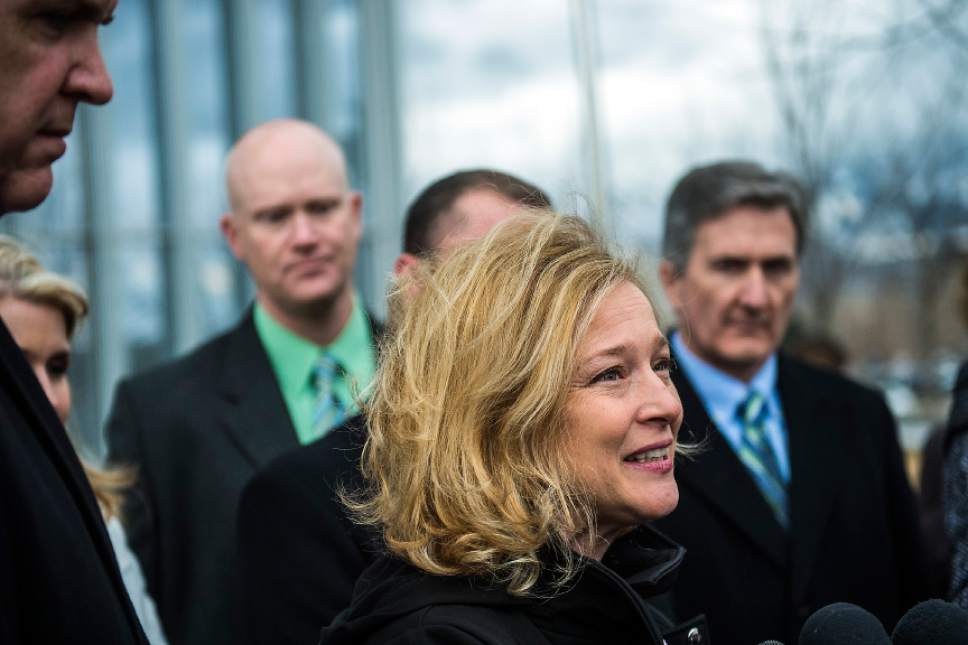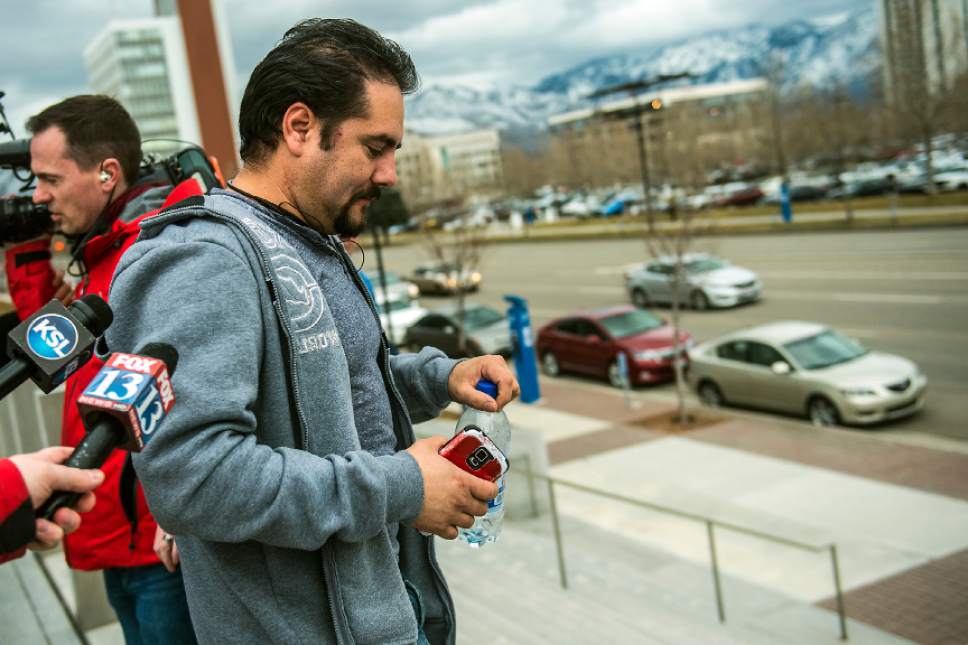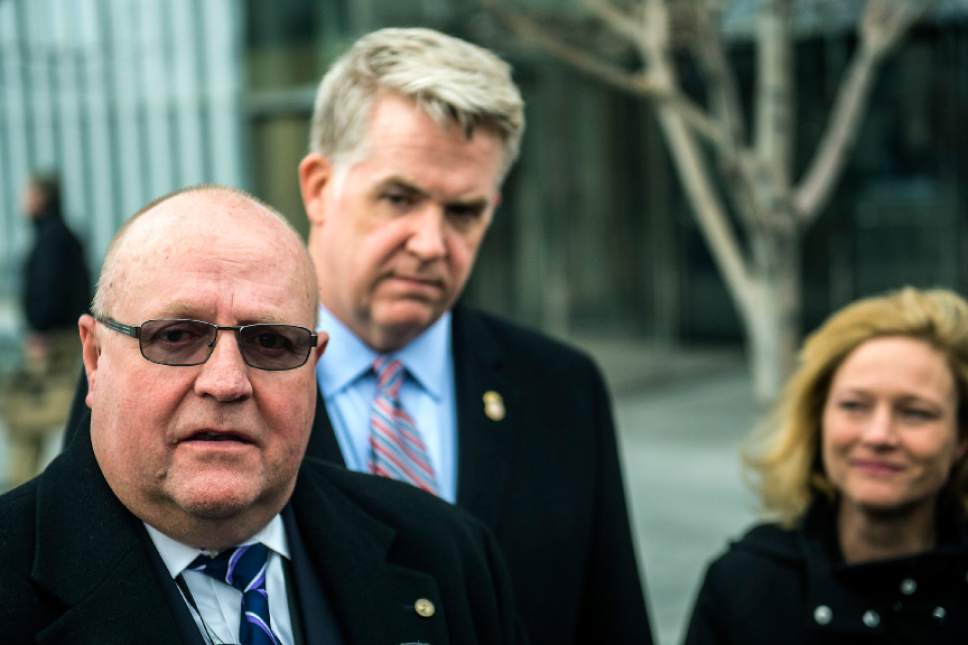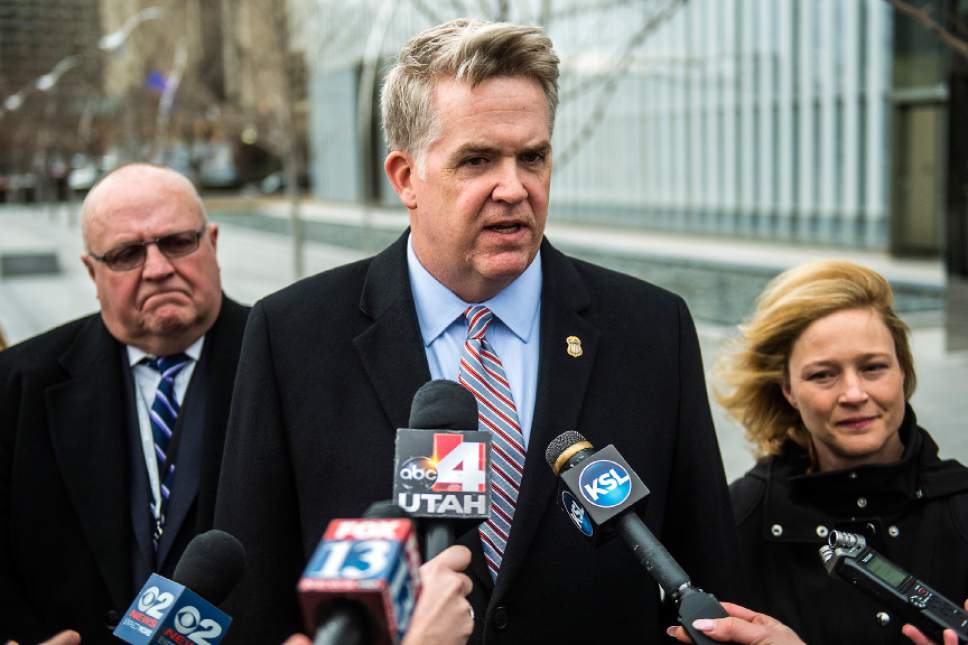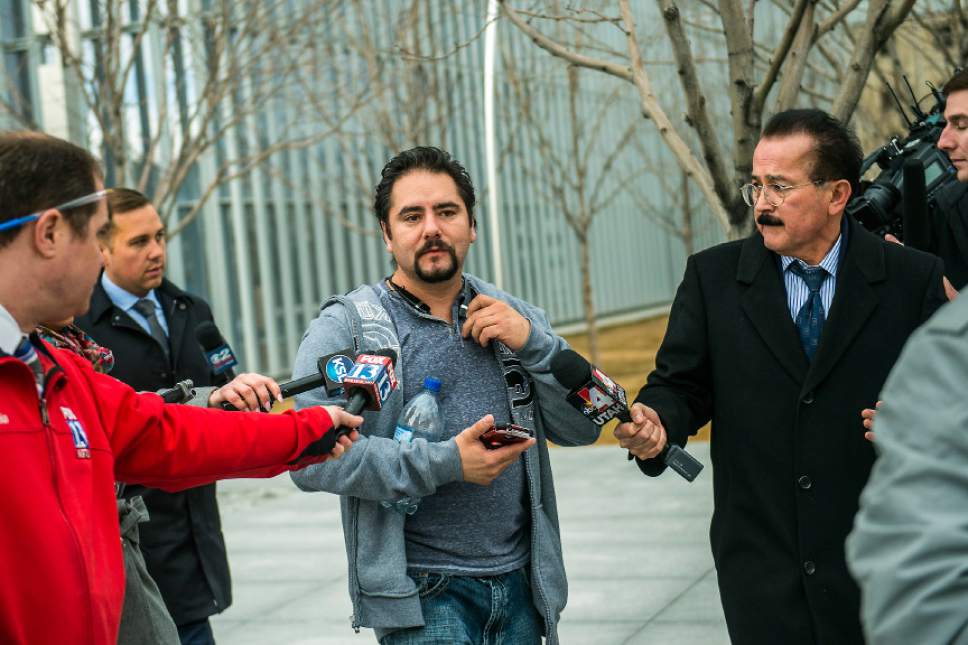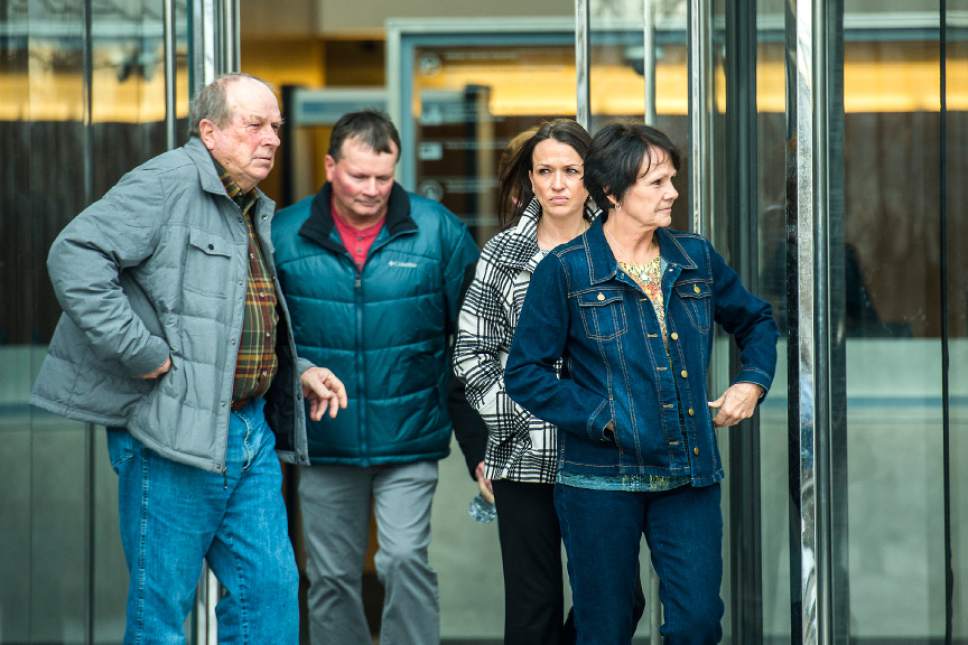This is an archived article that was published on sltrib.com in 2017, and information in the article may be outdated. It is provided only for personal research purposes and may not be reprinted.
When he heard a guilty verdict announced Tuesday at the trial of a man accused of fatally shooting one of his deputies during a 2010 traffic stop, Millard County Sheriff Robert Dekker's first thought was, "Finally."
"Finally. Finally, and I felt at peace," Dekker said. "From the time my phone rang that morning, Jan. 5 (2010), until now, I haven't felt that — and I do now."
On Tuesday, a federal jury convicted Roberto Miramontes Roman of eight charges, including intentionally killing a local law enforcement officer engaged in the performance of official duties and using a firearm during a crime of violence. The 44-year-old is set to be sentenced April 27 by U.S. District Judge David Nuffer, who could impose a punishment of up to life in prison.
The conviction came in Roman's second trial on a charge of killing Deputy Josie Greathouse Fox, 37, who was hit by two bullets on that day in 2010 as she approached a Cadillac sedan she had pulled over near Delta because the occupant was suspected of being involved in a drug transaction.
At the first trial, in Utah's 4th District Court in 2012, Roman and his lawyers surprised prosecutors and jurors with the assertion that it was Ryan Greathouse, the deputy's brother, who pulled the trigger.
Roman, who testified at the trial, was acquitted of an aggravated-murder charge but was found guilty of tampering with evidence and possessing a firearm. He was sentenced to 10 years at the Utah State Prison.
In 2013, a federal grand jury indicted Roman on 11 charges, including intentionally killing a law enforcement officer. Nuffer ruled in 2014 that the charges do not amount to double jeopardy because the state and the federal government are separate sovereign entities. The 10th Circuit Court of Appeals later upheld that ruling.
Defense attorney Stephen McCaughey said Tuesday that he is sure there will be an appeal, adding that it was not fair to try Roman twice for the same crime.
U.S. Attorney for Utah John Huber said prosecutors are pleased that the jury found the truth in the case "and delivered justice today, seven years after this cold-blooded killing of one of our cherished and valued law-enforcement officers." Justice also was served, he said, by the jury rejecting "the complete and utter fabrication" that Greathouse killed his sister.
The eight women and four men on the jury deliberated for about 10 hours Monday and Tuesday before reaching a verdict. In addition to finding that Roman intentionally killed Fox and used a firearm during a crime of violence, the jury determined that he was guilty of three counts of distribution of methamphetamine, two counts of carrying a firearm during a drug-trafficking crime and one count of possessing a firearm in furtherance of a drug-trafficking crime.
On Jan. 12, Roman pleaded guilty to three of the 11 charges — one count each of being a felon in possession of firearms, being in the country illegally and being in possession of a firearm, and re-entering the United States after being previously removed. He admitted in a written statement that on Jan. 5, 2010, he knowingly possessed an AK-47-style rifle and a handgun.
At trial, federal prosecutors said Roman and Greathouse had met in the McCornick area the night of the shooting and smoked methamphetamine, then drove off in separate directions. They said the rifle used to shoot Fox belonged to Greathouse, who had given it to Roman as collateral for a drug debt a few months prior.
After the shooting, Roman fled to Salt Lake City and then Beaver, where he was found the next day and arrested. Prosecutors say he confessed in a police interview to the crime, but Roman later said he lied because Greathouse threatened his children.
Greathouse, 40, who denied involvement in the slaying, was found dead from an overdose in a Las Vegas hotel room April 22, 2010.
At his federal trial, Roman again testified that Greathouse was sitting on the floor of the sedan on the front passenger side when the vehicle was pulled over. He said Greathouse grabbed the rifle, reached across Roman in the driver's seat, pointed the muzzle out the driver's window and fired at a dark silhouette.
This time, prosecutors knew what to expect from Roman's testimony.
A firearms examiner from the Bureau of Alcohol, Tobacco, Firearms and Explosives reconstructed the shooting scene based on Roman's confession and his later claim that Greathouse pulled the trigger and was "able to distinguish the truth from fiction," said Assistant U.S. Attorney Trina Higgins, the case's lead prosecutor. The examiner testified that the physical and circumstantial evidence in the case fit Roman's confession to the crime.
Fox's family members who were in court Tuesday had no immediate comment, except that they were happy with the verdict. Dekker said the family feels better, especially now that Ryan Greathouse's name has been cleared.
"I think it was a double homicide that morning," the sheriff said. "I think both of them were killed that day. It just took longer for Ryan to catch up."
Dekker said Fox will be remembered as a great deputy who made a difference to many people, especially youths. Even now, he said, community members still say, "Josie helped me."
Twitter: @PamelaMansonSLC


